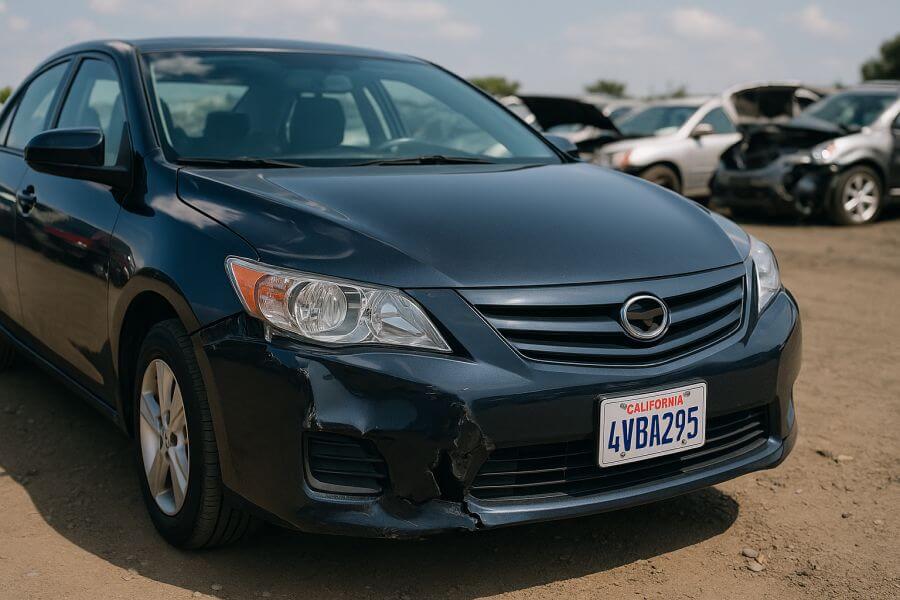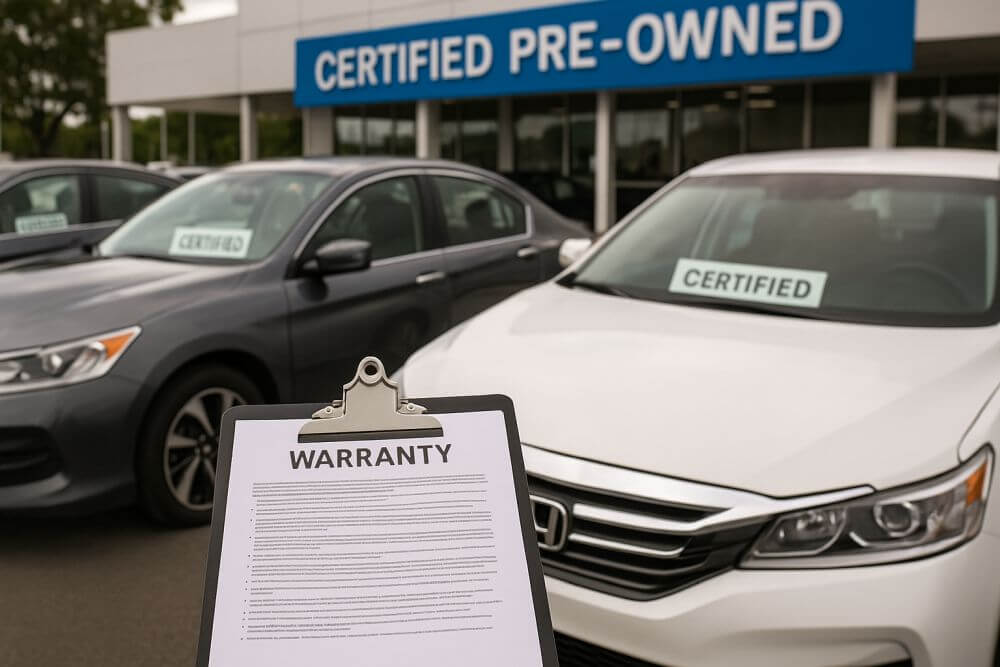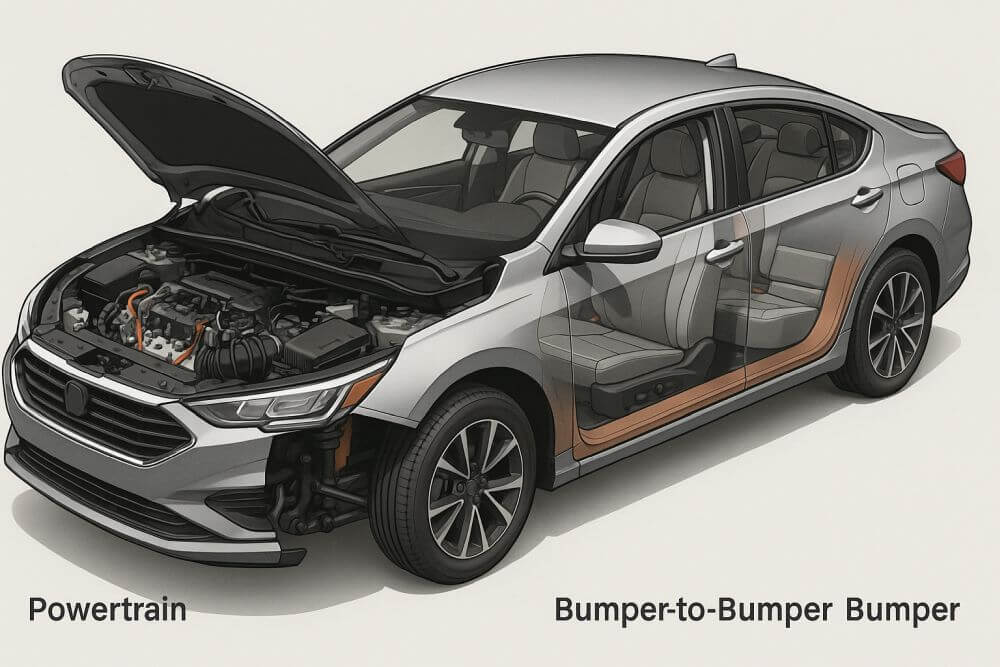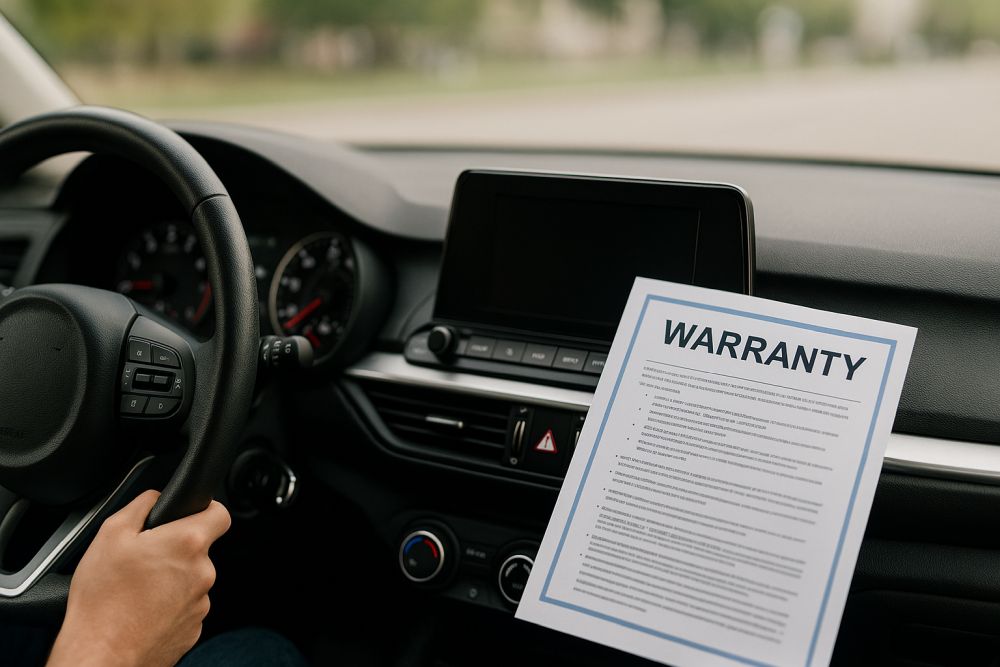When shopping for a used car in California, one term that might raise eyebrows — or tempt your budget — is a rebuilt title. These vehicles often come with a significantly lower price tag than their clean-title counterparts, but they also come with risk.

Before you decide whether a rebuilt title car is right for you, it’s important to understand what it really means, how it got that way, and how you can check the vehicle history with a California VIN lookup before committing to a purchase.
What Is a Rebuilt Title?
A rebuilt title (also known as a rebranded title) is issued to a vehicle that was previously declared a total loss by an insurance company due to serious damage — usually from an accident, flood, fire, or theft — but has since been repaired and passed a state inspection.
In California, this process follows two key stages:
- Salvage Title
When a car is severely damaged and the cost of repairs exceeds a percentage of its market value, it is issued a salvage title. At this point, the vehicle is considered not roadworthy. - Rebuilt Title
If someone (usually a private buyer or licensed rebuilder) repairs the salvage vehicle and submits it for inspection to the California Department of Motor Vehicles (DMV) or the California Highway Patrol (CHP), and it passes safety and equipment checks, it can receive a rebuilt title. This means it is legally allowed back on the road — but its title will always carry the rebuilt designation.
How Is a Rebuilt Title Different from a Salvage Title?
While both titles suggest serious past damage, they mean different things legally and practically:
| Title Type | Meaning |
|---|---|
| Salvage Title | Vehicle is considered totaled and cannot be legally driven or registered until rebuilt and inspected. |
| Rebuilt Title | Vehicle was once salvaged but has been repaired and passed inspection to be roadworthy again. Still branded as rebuilt in all future records. |
What Are Common Reasons a Car Gets a Rebuilt Title in California?
In most cases, vehicles receive rebuilt titles due to:
- Collision Damage: Major accidents requiring structural, airbag, or suspension repairs.
- Flood Damage: Water intrusion into the engine, transmission, or electrical systems.
- Fire Damage: Burnt interiors, wiring, or under-the-hood components.
- Vandalism or Theft Recovery: Cars recovered after being stripped or vandalized.
- Hail or Weather Damage: Particularly if damage affected large areas of the body or glass.
Keep in mind: even if the car appears clean, underlying issues like rust, electrical faults, or unibody damage may not be immediately visible.
Pros and Cons of Buying a Rebuilt Title Car in California
✅ Pros:
- Lower Purchase Price: Rebuilt title vehicles can be 20–40% cheaper than similar clean-title models.
- More Negotiation Power: Fewer buyers are willing to take the risk, giving you leverage.
- Potential for Value: Some cars are professionally rebuilt with care and may last years with proper maintenance.
❌ Cons:
- Hidden or Poor Repairs: Some rebuilders cut corners or hide frame damage with cosmetic fixes.
- Difficult to Resell: Rebuilt vehicles can be harder to trade in or sell privately.
- Limited Financing: Most lenders won’t finance rebuilt title cars, or will charge high interest.
- Insurance Restrictions: Many insurers won’t offer full coverage, or will limit claim payouts.
Should You Buy a Rebuilt Title Car in California?
It depends on your situation and risk tolerance. If you’re mechanically inclined or working with a trusted mechanic, and the vehicle passes all inspections, you could score a good deal. But if you’re looking for peace of mind, long-term reliability, and easy resale, a clean-title car may be the safer choice.
Here are some important questions to ask:
- Was the damage cosmetic or structural?
- Who repaired the car, and do they have a license?
- Are there photos of the vehicle before repairs?
- Is the car backed by any form of warranty?
- Can I take it to an independent mechanic for a pre-purchase inspection?
No matter how good the deal sounds, always check the vehicle history with a California VIN lookup before buying.
How to Check a Rebuilt Title in California
To confirm if a vehicle has a rebuilt or salvage history:
- Get the VIN (Vehicle Identification Number)
- Located on the dashboard (driver side), door jamb, registration, or title.
- Use a Free California VIN Lookup Tool
- Go to VinCheckPro.com and enter the VIN.
- Review the Report
- Look for branding terms like: salvage, rebuilt, flood, junk, or total loss.
- Check for accident records, previous owners, odometer rollbacks, and open recalls.
A rebuilt title will always show up in the vehicle’s public record. A proper VIN check is your first line of defense against unknowingly buying a risky car.
Frequently Asked Questions (FAQs)
Is it legal to sell a rebuilt title car in California?
Yes, but the seller must disclose the rebuilt title status. Misrepresentation is illegal and can result in civil penalties.
Will a rebuilt title affect insurance in California?
Most major insurers will only offer liability coverage, not comprehensive or collision. Some may refuse coverage entirely, so always check before buying.
Can I get financing on a rebuilt title car?
It’s difficult. Most banks and credit unions won’t approve loans on rebuilt vehicles due to low resale value. If you can find a lender, expect a high interest rate and down payment.
How much less should I pay for a rebuilt title car?
In general, rebuilt cars sell for 20–40% less than the same model with a clean title. The exact discount depends on the extent of the original damage and quality of repairs.
Will the rebuilt title ever go away?
No. A rebuilt title is permanent and will remain part of the vehicle’s history forever. It will show up in every future VIN check.
Final Thoughts
A rebuilt title car in California isn’t necessarily a bad deal — but it is a high-risk purchase that requires due diligence. If you’re considering one, don’t rely on the seller’s word alone. Be thorough:
- Have it professionally inspected
- Understand the original damage
- Confirm repair quality
- And always check the vehicle history with a California VIN lookup
What looks like a bargain today could become a burden tomorrow — unless you know exactly what you’re buying.


